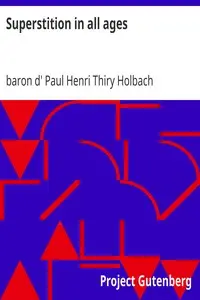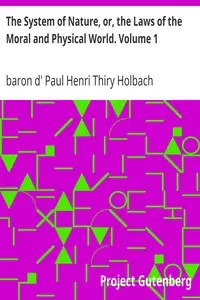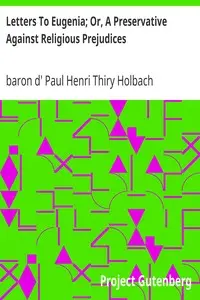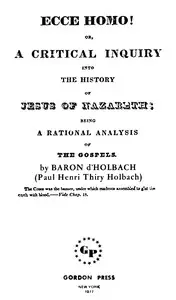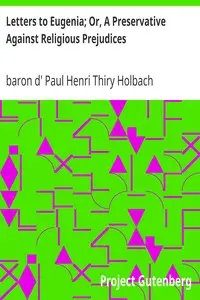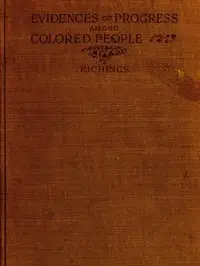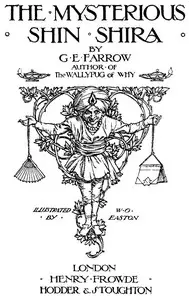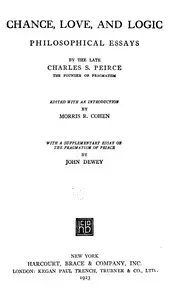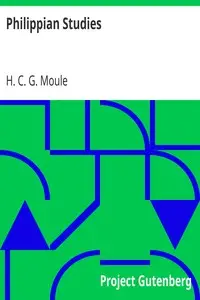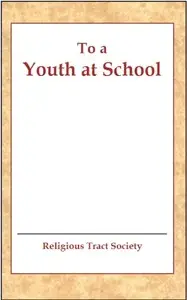"Christianity Unveiled" by Nicolas-Antoine Boulanger is a critical examination of Christian beliefs and practices written in the early 19th century. The work aims to dissect the principles and implications of Christianity, particularly its historical foundations, moral teachings, and societal impacts. The author presents Christianity as an amalgamation of ancient superstitions, suggesting it is rooted in irrationality and has been a source of conflict and tyranny throughout history. The opening of the text introduces the necessity for an inquiry into religion, particularly Christianity, urging readers to use reason and experience as their guides. Boulanger discusses how people often blindly adhere to religious beliefs without questioning their validity or origins, largely influenced by social norms and upbringing. He argues that such unexamined faith leads to societal oppression, ignorance, and moral confusion. Furthermore, Boulanger critiques the historical behavior of religious leaders and the resulting impact on both political governance and personal morality, foreshadowing the extensive critique he will elaborate throughout the book. (This is an automatically generated summary.)

Christianity Unveiled Being an Examination of the Principles and Effects of the Christian Religion
By Paul Henri Thiry Holbach
"Christianity Unveiled" by Nicolas-Antoine Boulanger is a critical examination of Christian beliefs and practices written in the early 19th century. T...
Paul-Henri Thiry, Baron d'Holbach, known as d'Holbach, was a Franco-German philosopher, encyclopedist and writer, who was a prominent figure in the French Enlightenment. He was born Paul Heinrich Dietrich in Edesheim, near Landau in the Rhenish Palatinate, but lived and worked mainly in Paris, where he kept a salon. He helped in the dissemination of "Protestant and especially German thought", particularly in the field of the sciences, but was best known for his atheism, and for his voluminous writings against religion, the most famous of them being The System of Nature (1770) and The Universal Morality (1776).

